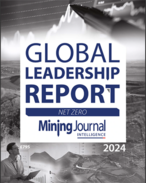This article is 5 years old. Images might not display.
BMW said the deal would secure 100% of the lithium required for the company's fifth generation battery cells.
The lithium will come from Ganfeng's part-owned Mt Marion mine in Western Australia's Goldfields, while Ganfeng is also an offtake partner of Pilbara Minerals.
"Alongside cobalt, lithium is one of the key raw materials for electromobility," BMW's Dr Andreas Wendt said.
"With the signing of this contract, we are securing our lithium needs for battery cells.
"We aim to have 25 electrified models in our line-up by 2023 - and more than half will be fully electric. Our need for raw materials will continue to grow accordingly. By 2025, for lithium alone, we expect to need about seven times the amount we do today."
BMW already publishes the origins of its cobalt supply (Australia and Morocco) and for its fifth generation of battery cells, it has restructured its supply chains and will directly source lithium and cobalt from 2020, making the raw materials available to the two battery cell manufacturers, CATL and Samsung SDI.
"Sustainability is an important aspect of our corporate strategy and plays a central role in expanding electromobility," Wendt said.
"We are fully aware of our responsibilities: lithium and other raw materials must be extracted and processed under ethically responsible conditions."
BMW recently increased the order volume for battery cells from CATL and Samsung.
The carmaker said its fifth generation electric drive trains would be produced without rare earths from 2021.
"This means we will no longer be dependent on their availability," said Wendt.























